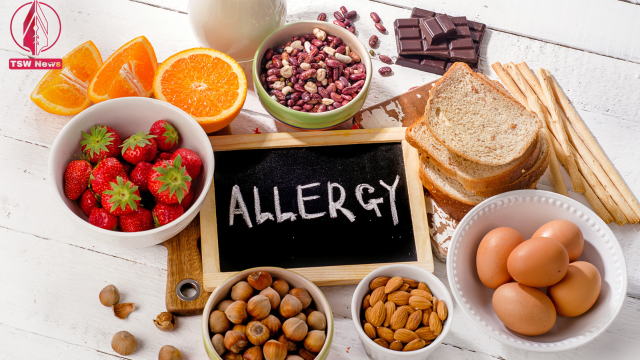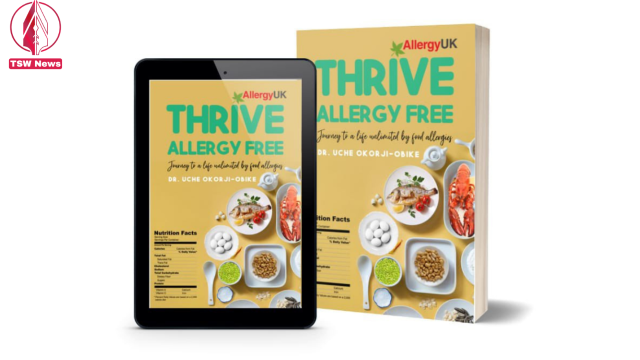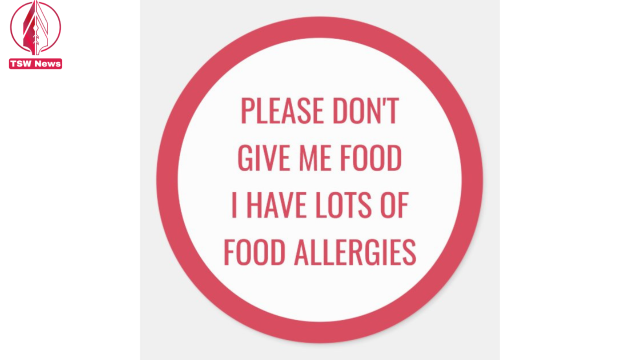Living with Food Allergies: Understanding, Managing, and Thriving
- Posted on May 20, 2023
- Lifestyle
- By ojashwini shrivastava
- 358 Views

Living with Food Allergies:-
Food allergies affect millions of people worldwide and can have a significant impact on an individual's quality of life. An adverse immune response to certain food proteins characterizes this condition, leading to a range of symptoms that can vary in severity. Understanding the causes, symptoms, potential Cures, and prevention strategies for food allergies is crucial for those affected and their caregivers.
What are the causes of Food Allergies?
Food allergies occur when the immune system mistakenly identifies specific proteins in certain foods as harmful. The immune system then releases chemicals, such as histamine, to protect the body. While any food can trigger an allergic reaction, some common culprits include peanuts, tree nuts, shellfish, fish, eggs, milk, soy, and wheat. Genetics often play a role, as allergies tend to run in families. Additionally, certain risk factors such as a family history of allergies, having other allergic conditions like asthma or eczema, and exposure to allergenic foods early in life can increase the likelihood of developing a food allergy.

What are the Symptoms of Food Allergies?
The symptoms of a food allergy can manifest within minutes or up to two hours after consuming the allergenic food. Common signs and symptoms include:
Skin reactions: Itching, hives, eczema, or swelling of the lips, face, tongue, or throat.
Gastrointestinal issues: Nausea, vomiting, abdominal pain, or diarrhea.
Respiratory problems: Wheezing, shortness of breath, or coughing.
Cardiovascular effects: Rapid heartbeat, low blood pressure, or fainting.
Anaphylaxis: A severe, potentially life-threatening allergic reaction characterized by a combination of symptoms such as difficulty breathing, a drop in blood pressure, loss of consciousness, and dizziness.
What are the Cures of Food Allergies?
Currently, there is no cure for food allergies. The primary approach to managing food allergies is strict avoidance of the allergenic food. If an individual experiences an allergic reaction, immediate treatment with antihistamines or, in severe cases, epinephrine (adrenaline) via an auto-injector like an EpiPen may be necessary. It is essential for individuals with food allergies to work closely with healthcare professionals to develop an action plan for managing potential allergic reactions.
How Can We Prevent Food Allergies?
Preventing food allergies is a complex challenge. However, several strategies can be implemented to reduce the risk:
Breastfeeding: Exclusive breastfeeding for the first four to six months of life has been associated with a lower risk of developing food allergies. Introducing solid foods should be done gradually and cautiously, under the guidance of a pediatrician or allergist.
Early introduction of allergenic foods: Recent research suggests that introducing potentially allergenic foods, such as peanuts and eggs, to infants around 4-6 months of age (after consulting with a healthcare professional) may help prevent the development of allergies. However, this should be done carefully in certain high-risk groups under professional supervision.
Label reading: Carefully reading food labels for potential allergens is crucial. Food manufacturers are required to disclose major allergens on product labels, making it easier to identify and avoid trigger foods.
Education and awareness: Promoting education and awareness about food allergies among healthcare professionals, schools, caregivers, and the general public is vital. Understanding the signs of an allergic reaction and appropriate emergency response measures can save lives.
Preparedness: Individuals with known food allergies should carry an epinephrine auto-injector (e.g., EpiPen) with them at all times and ensure that family, friends, and coworkers are aware of their condition and how to use the auto-injector if needed.
Conclusion
Food allergies are a common and serious health issue affecting numerous individuals worldwide. While there is currently no cure for food allergies, understanding the causes, symptoms, and available treatment options is crucial for effectively managing this condition. Strict avoidance of allergenic foods and immediate treatment with antihistamines or epinephrine in case of an allergic reaction are key components of managing food allergies.
Prevention plays a vital role in reducing the risk of developing food allergies. Breastfeeding exclusively for the first few months of life, gradually introducing potentially allergenic foods under professional guidance, reading food labels carefully, promoting education and awareness, and being prepared with necessary emergency measures are all important preventive measures.
Living with Food Allergies: Understanding, Managing, and Thriving
Food allergies affect millions of people worldwide and can have a significant impact on an individual's quality of life. An adverse immune response to certain food proteins characterizes this condition, leading to a range of symptoms that can vary in severity. Understanding the causes, symptoms, potential cures, and prevention strategies for food allergies is crucial for those affected and their caregivers.
What are the causes of Food Allergies?
Food allergies occur when the immune system mistakenly identifies specific proteins in certain foods as harmful. The immune system then releases chemicals, such as histamine, to protect the body. While any food can trigger an allergic reaction, some common culprits include peanuts, tree nuts, shellfish, fish, eggs, milk, soy, and wheat. Genetics often play a role, as allergies tend to run in families. Additionally, certain risk factors such as a family history of allergies, having other allergic conditions like asthma or eczema, and exposure to allergenic foods early in life can increase the likelihood of developing a food allergy.
What are the Symptoms of Food Allergies?
The symptoms of a food allergy can manifest within minutes or up to two hours after consuming the allergenic food. Common signs and symptoms include:
Skin reactions: Itching, hives, eczema, or swelling of the lips, face, tongue, or throat.
Gastrointestinal issues: Nausea, vomiting, abdominal pain, or diarrhea.
Respiratory problems: Wheezing, shortness of breath, or coughing.
Cardiovascular effects: Rapid heartbeat, low blood pressure, or fainting.
Anaphylaxis: A severe, potentially life-threatening allergic reaction characterized by a combination of symptoms such as difficulty breathing, a drop in blood pressure, loss of consciousness, and dizziness.
What are the Cures of Food Allergies?
Currently, there is no cure for food allergies. The primary approach to managing food allergies is strict avoidance of the allergenic food. If an individual experiences an allergic reaction, immediate treatment with antihistamines or, in severe cases, epinephrine (adrenaline) via an auto-injector like an EpiPen may be necessary. It is essential for individuals with food allergies to work closely with healthcare professionals to develop an action plan for managing potential allergic reactions.
How Can We Prevent Food Allergies?
Preventing food allergies is a complex challenge. However, several strategies can be implemented to reduce the risk:
Breastfeeding: Exclusive breastfeeding for the first four to six months of life has been associated with a lower risk of developing food allergies. Introducing solid foods should be done gradually and cautiously, under the guidance of a pediatrician or allergist.
Early introduction of allergenic foods: Recent research suggests that introducing potentially allergenic foods, such as peanuts and eggs, to infants around 4-6 months of age (after consulting with a healthcare professional) may help prevent the development of allergies. However, this should be done carefully in certain high-risk groups under professional supervision.
Label reading: Carefully reading food labels for potential allergens is crucial. Food manufacturers are required to disclose major allergens on product labels, making it easier to identify and avoid trigger foods.
Education and awareness: Promoting education and awareness about food allergies among healthcare professionals, schools, caregivers, and the general public is vital. Understanding the signs of an allergic reaction and appropriate emergency response measures can save lives.
Preparedness: Individuals with known food allergies should carry an epinephrine auto-injector (e.g., EpiPen) with them at all times and ensure that family, friends, and coworkers are aware of their condition and how to use the auto-injector if needed.
Conclusion
Food allergies are a common and serious health issue affecting numerous individuals worldwide. While there is currently no cure for food allergies, understanding the causes, symptoms, and available treatment options is crucial for effectively managing this condition. Strict avoidance of allergenic foods and immediate treatment with antihistamines or epinephrine in case of an allergic reaction are key components of managing food allergies.

Prevention plays a vital role in reducing the risk of developing food allergies. Breastfeeding exclusively for the first few months of life, gradually introducing potentially allergenic foods under professional guidance, reading food labels carefully, promoting education and awareness, and being prepared with necessary emergency measures are all important preventive measures.
For more updates keep visiting our website www.topstoriesworld.com where we provide unbiased, true and top stories of the world.




